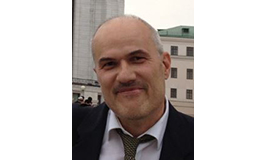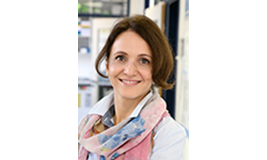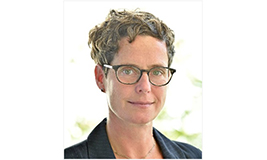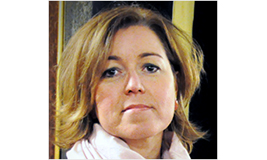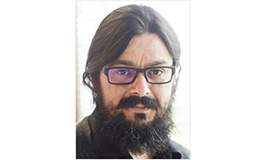Tendons and Ligaments Special Issue: from Biology to Biofabrication
Leonardo da Vinci said: “The human foot is a masterpiece of engineering and a work of art”; it is built up by 26 bones, 29 muscles, 33 joints and over 70 tendons and ligaments. Tendons and ligaments are dense connective tissues connecting bone to muscle or bone to bone, respectively, and are indispensable for body locomotion by transmitting muscle-generated force to the bone. Due to accidents and ageing, tendon diseases present major clinical and financial challenges in orthopaedics. Inevitably, tendinopathies lead to tendon rupture and, once this happens, tendon natural healing is slow, often responding poorly to treatments and requiring prolonged rehabilitation in most cases. A major cause of tendon rupture is tendon tissue degeneration, a process that can be considered a failure of matrix adaptation and remodelling due to a variety of stresses and mechanical loads. Following tendon/ligament injury, repair mechanisms involving activation of stem/progenitor cells, vascular and immune cells together with extracellular matrix synthesis, deposition and remodelling are induced, leading to incomplete restoration of tendon structure and biomechanical strength. The clinical outcome is frequently unsatisfactory, resulting in compromised mobility, loss of independence and significant reduction in life quality. Hence, repair-augmenting strategies are much desired. Currently, tissue engineering and biofabrication techniques represent very attractive tactics to achieve satisfactory biological repair and regeneration. At their core lies the reconstruction of 3D niches ensuring appropriate cell and biomaterial interactions, which in turn trigger key biochemical and biomechanical signals that steer desirable and stable cell behaviour. Vascular and immune features as well as sufficient integration of the engineered implants are also critical parameters contributing to the extent and long-term quality of tendon regeneration. The intermix of enriched basic understanding of tendon and ligament biology with cutting-edge material science and biofabrication technologies can lead to the long-awaited breakthrough in the management of tendon/ligament diseases. Therefore, this Special Issue aims to deliver an up-to-date synopsis on tendon stem/progenitor cell biology under degenerative and regenerative conditions, cell-to-matrix/material interactions controlling cell behaviour, 3D niches/models, tendon engineering and biofabrication strategies as well as repair/regeneration models. We encourage researchers to contribute to this Special Issue with original research or review articles along the above-described topics.
Topics include but are not limited to: Tendon, ligament, enthesis, myotendinous junction, stem/progenitor cells, cell differentiation, biomechanics, extracellular matrix, degeneration, injury/rupture, biomaterials, 3D niche, tissue engineering, biofabrication, repair, regeneration.
Submission deadline: 31st of October 2021
All papers (invited and open submitted) undergo full peer review. All accepted manuscripts will follow the Article Processing Charge (APC) policy of eCM.
Publication: immediately upon acceptance
Editorial team
|
eCM Scientific Editor Dr Jürg Gasser |
Jürg Gasser is Director of Biomarker Research for the Musculoskeletal Disease area at Novartis Institutes for BioMedical Research, covering regenerative programs in bone, cartilage, tendon and peripheral nerve. He graduated from the University of Bern, Switzerland, and obtained his PhD in Biochemistry from the Faculty of Science at University College London, UK. His main focus is the understanding of disease pathologies, discovery of novel targets, and development of regenerative pharmacological- and gene-therapies that, in combination with digital tools, aim to restore mobility and independence of patients affected by musculoskeletal diseases and injuries. Jürg Gasser was founder and President of the International Society of Musculoskeletal and Neuronal Interactions and a member of the Board of Directors of the International Society of Bone Morphometry, the International Society of Musculoskeletal and Neuronal Interactions, the Swiss Bone and Mineral Society and the Asia Pacific Society for Bone Morphometry. He has published 116 peer-reviewed articles, 3 book chapters, and given 72 invited lectures and 90 oral communications (4784 citations and a H-index of 31 according to Google Scholar). Dr. Gasser acts as a referee for numerous scientific journals, is Scientific Editor of European Cells and Materials, and on the Editorial Board of Bone, Calcified Tissue International and Journal of Orthopaedic Translation. He is also a registered musculoskeletal disease expert for the EU Framework Program grant evaluations, as well as for many national funding schemes throughout Europe.
|
|
|
eCM Scientific Editor Prof Denitsa Docheva |
Denitsa Docheva is a wide-profile expert in tendon biology covering cell & molecular, developmental (transgenic mouse strains), in vivo injury and clinical translational models. She holds two parallel MSc degrees, in Biology and Chemistry from the Faculty of Natural Sciences, University of Plovdiv, Bulgaria, and a PhD in Molecular Biology for her study at the Max-Planck-Institute for Biochemistry, Martinsried, Germany. She also holds second Doctoral Degree (Dr. habil. med.) in Experimental Surgery from the Medical Faculty of Ludwig-Maximilians-University, Munich, Germany. Currently, she is a Guest Professor at the Medical University of Plovdiv, Bulgaria. Denitsa Docheva conducts research in the fields of tendon stem/progenitor cells, tenomodulin gene, aging and degeneration, tissue engineering, biofabrication, repair and regeneration. Her research was funded by the EU, DFG, BFS, NIH, ON Foundations. She has authored more than 90 publications in journals such as “Aging Cell”, “Biomaterials”, “EBioMedicine”, “Cell Death & Disease”, “Advance Drug Delivery Reviews”, “Molecular and Cell Biology”, “Genes & Development”, “Nanomedicine”, “European Cells & Materials”. Since 2020, Denitsa Docheva is an eCM Scientific Editor, with 4432 citations and a H-index of 32 (Google Scholar). She has given over 70 invited lectures and 100 communications at conferences. She has won several scientific awards, the most recent being the “Tendon Section Podium Award”, at the ORS 2018, New Orleans, Louisiana, USA. Since 2019, she is the Chair of the Musculoskeletal Regeneration Network (MR-Net) of the Basic Research Section of the German Society of Orthopaedic and Trauma Surgery. She organized the 25th Annual and Anniversary Meeting of the European Orthopaedic Research Society (EORS) in 2017, Munich, Germany. Denitsa Docheva was the EORS President from 2018 to 2020 and for the next two-year period, she is the EORS immediate Past-President and EORS representative on the Steering Committee of the International Combined ORS (ICORS) as well as on the Oversight Committee of the World Orthopaedic Research Congress ICORS 7th-10th of September 2022 in Edinburgh, UK.
|
|
|
eCM Guest Editor Prof Britt Wildemann |
Britt Wildemann is a biologist and obtained her PhD in neurobiology from the Freie Universität Berlin, Germany, in 1998. In 1999, she started her research on musculoskeletal regeneration at the Charité-Universitätsmedizin Berlin and since 2009, she has been a Professor at the Berlin-Brandenburg Center for Regenerative Therapies (BCRT). In June 2018, she became Head of the “Experimental Trauma Surgery” of the Jena University Hospital. Her research investigates the regeneration of the musculoskeletal system with the two main interests: 1) Osseous regeneration and infection prophylaxis and 2) Tendinopathy and tendon regeneration. Various national and international agencies and programs support her research such as: DFG, BMBF, EU, and also industry. She was awarded with several prizes including COPP-Award 2004 of the German Society of Osteology, APOA-Pfizer Best Scientific Paper Award 2011 for Orthopaedic Infection, and Oskar-Helene-Medical Award 2011 of the Oskar-Helene-Heim Foundation. She is member of the editorial review board for several journals: Bone and Joint Research, eCM, International Journal of Molecular Medicine, Journal of Orthopaedic Research and Scientific Reports and member of the relevant scientific organizations. Her work was published in over 100 peer-reviewed publications, 6 book chapters and cited over 3900 times with a H-index of 37 (Web of Science). She is the German Ambassador for the EORS.
|
|
|
eCM Guest Editor Assoc. Prof Manuela E. Gomes
|
Manuela E. Gomes is Associate Professor and President of the I3Bs Research Institute of the University of Minho, Portugal. Her research interests currently focus on tendon tissue engineering strategies, namely in the development of scaffold materials and bioinks based on biodegradable natural origin polymers, stem cells sourcing and differentiation (using biochemical and physical methods). She graduated in Metallurgical and Materials Engineering, University of Porto, Portugal in 1997, obtained a MSc in Polymer Engineering, Univ. of Minho in cooperation with the company Isotis, Bilthoven (Holland), and a PhD in Materials Science and Engineering – Tissue Engineering/Hybrid Materials in collaboration with the Rice University (USA), in 2005. She was a co-founder of the 3B’s Research Group and one of the vice-directors of the group since 2011. Manuela Gomes is a board member of the Doctoral Program on Tissue Engineering, Regenerative Medicine and Stem Cells and is responsible for lecturing on biomaterials, tissue engineering and stem cells to Biomedical Engineering students of the University of Minho. She has been participated in numerous European and national/regional projects as PI or member. She was awarded a Consolidator Grant from the European Research Council (ERC CoG) to develop magnetically assisted tissue engineering technologies for tendon regeneration and with a EC funded Twinning Project – “Achilles: Overcoming specific weaknesses in tendon biology to design advanced regenerative therapies”, in collaboration with NUI Galway (Ireland), University Regensburg Medical Centre (Germany) and the Mayo Clinic (USA). Manuela Gomes is editor 2 books and co-editor of the Tissue Engineering Encyclopaedia (Elsevier, 2019) and author of 44 book chapters, 200 full papers published in international refereed journals, and more than 300 communications in international conferences (7.900 citations, H-index of 47). She has received several awards, including the 2013 Young Investigator Award of the Tissue Engineering and Regenerative Medicine International Society – European Chapter (TERMIS-EU). Manuela Gomes is an active member of several international scientific organizations, being currently a member-at -large and chair of the membership committee of TERMIS, and Portugal Ambassador for the EORS.
|
|
|
eCM Guest Editor Prof Dimitrios I. Zeugolis |
Dimitrios I. Zeugolis is the Director of the Regenerative, Modular & Developmental Engineering Laboratory (REMODEL) and Editor-in-Chief of Biomaterials and Biosystems (Elsevier). His research group operates in the following five major areas: (1) Bottom-up and top-down biomaterial fabrication technologies for the development of implantable devices that will closely imitate the properties of native extracellular matrix supramolecular assemblies; (2) Medical device functionalisation, through incorporation of biophysical, biochemical and biological signals, to provide functional therapeutic interventions for the treatment of soft and hard tissue injuries and degenerative conditions; (3) Modulation of the in vitro microenvironment to facilitate preservation of permanently differentiated cell phenotype and/or to direct differentiation of stem cells towards specific lineages, enabling development, commercialisation and clinical translation of cell-based therapies and advanced medicinal products; (4) Development of scaffold and scaffold-free in vitro pathophysiology models for drug and gene discovery purposes; (5) Development of next generation meat products for food security purposes. He has authored >100 peer-reviewed articles, >400 peer-reviewed conference abstracts and >15 peer-reviewed book chapters. He is on the editorial board of >10 journals and acts as reviewer for >130 journals and >30 funding agencies. Dimitrios Zeugolis has chaired / co-chaired >15 conferences and >50 symposia and has acted as advisor in >25 conferences. He has secured 2 patents and founded 2 companies. He has conducted research for >40 companies and has been involved in the development and commercialisation of numerous food and medical device products.
Published manuscripts
|
|

